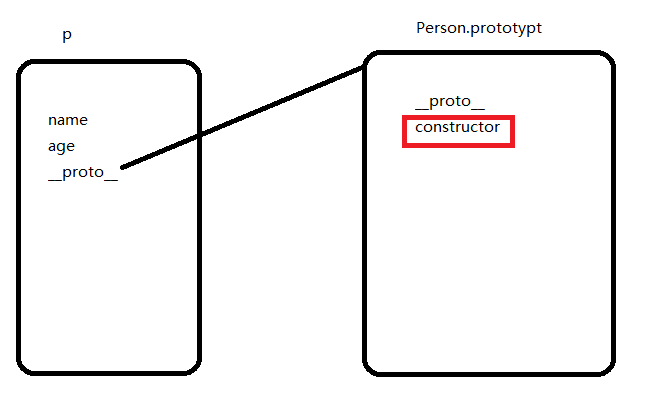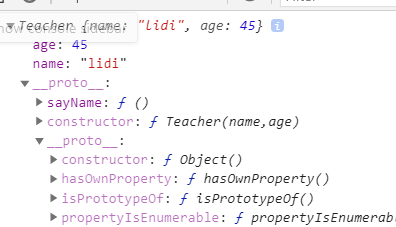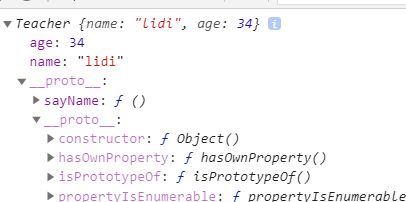1-1 构造属性
## 创建构造函数的时候,原型对象上会有一个constructor属性,它是原型对象所独有的,它指向构造函数本身。

function Person(name,age){ this.name = name this.age = age}var p = new Person("cheng",20)console.log(p.constructor);console.log(p.constructor == Person); // trueconsole.log(p.__proto__ == Person.prototype); //truevar arr = [1,2,3]console.log(arr.constructor == Array); // true
1-2 给原型添加属性
# 问题:我们以直接量(对象)形式,给原型添加属性的时候,它的constructor会指向Object# 解决:重置 constructor
function Person(name,age){ this.name = name this.age = age}Person.prototype = { sayName:function(){ console.log(this.name); }, sayAge(){ console.log(this.age); }}var p = new Person("cheng",20)console.log(p.constructor); //Objectconsole.log(p.constructor == Person); // falseconsole.log(p instanceof Person); // true## 解决办法Person.prototype = { constructor:Person, // 重置 constructor sayName:function(){ console.log(this.name); }, sayAge(){ console.log(this.age); }}var p = new Person("cheng",20)console.log(p.constructor); // Personconsole.log(p.constructor == Person); // true


1-3 公有属性和私有属性
# 公有属性: 一般在原型对象上# 私有属性: 通过this关键字去添加的# hasOwnProperty: 可以判断属性是私有的还是公有的
function Person(name,age){ this.name = name this.age = age}Person.prototype = { constructor:Person, sayName:function(){ console.log(this.name); }, sayAge(){ console.log(this.age); }}var p = new Person("cheng",20)console.log(p.hasOwnProperty("name")); // true 私有的console.log(p.hasOwnProperty("sayName")); // false 公有的//判断constructor是否是原型对象的私有属性console.log(Person.prototype.hasOwnProperty("constructor")); // true




